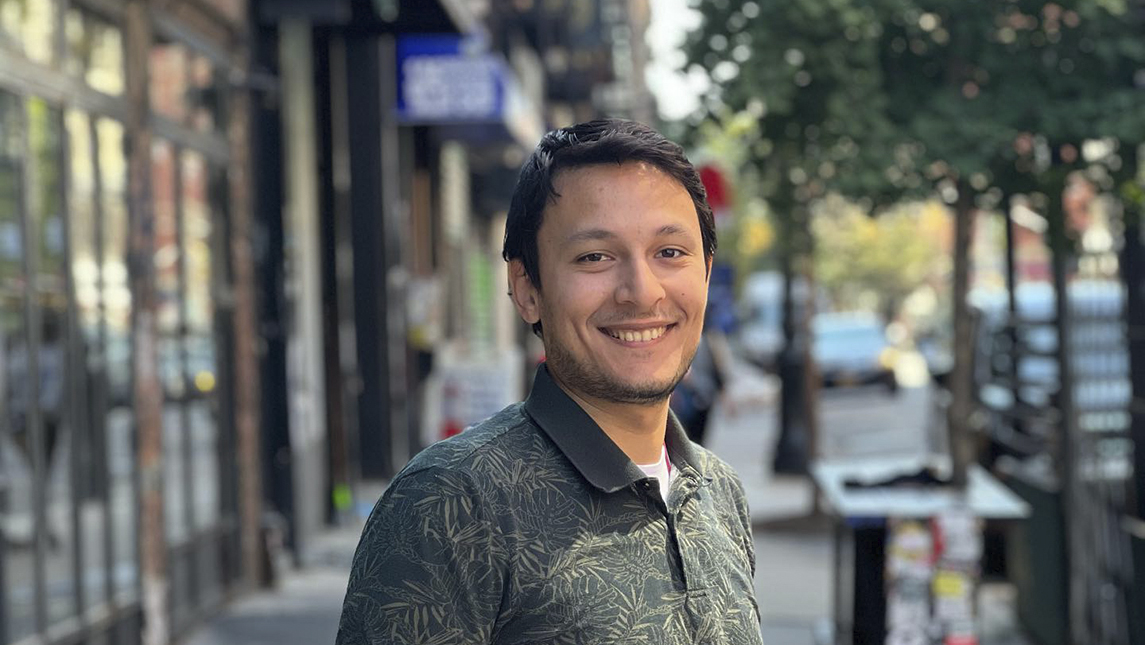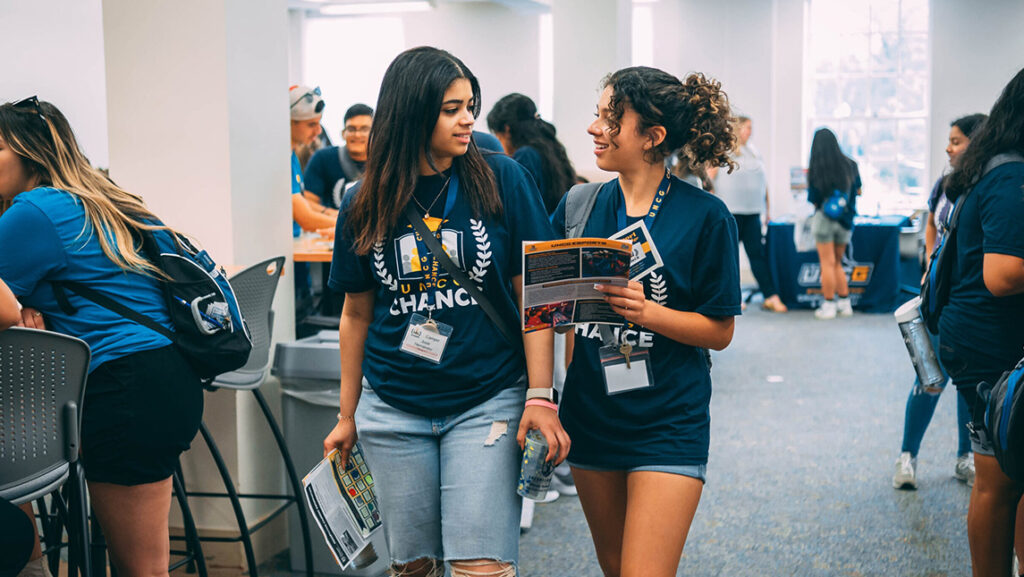Fulbright student Mostafa ABdelmegeed hopes to pair his undergraduate training in biomedical engineering with a computer science degree from UNCG to advance health care.
With implications for drug discovery, disease diagnosis, personalized treatment, hospital management and more, data science is transforming medicine. Mostafa Abdelmegeed, a UNC Greensboro master’s student in computer science, hopes to marry his undergraduate training in biomedical engineering with skills he gains at UNCG in data science to advance medical care not only in his home country, Egypt, but around the world.
Abdelmegeed is among three Fulbright students currently pursuing degrees at UNCG. The Fulbright Program is a U.S. government-funded international student exchange program, bringing top students from other countries to the U.S. and supporting selected U.S. students to study abroad.
“Fulbright is one of the most respected programs in the world for student and scholar international exchange and engagement, so hosting Fulbright scholars and students on our campus is a great honor for UNCG,” says Maria Anastasiou, UNCG’s associate provost and senior international officer.
Learning from mentors at home and at UNCG
Abdelmegeed says a prescient professor in Egypt pushed him to pursue computer science as a way to improve medicine.
“He had an idea what the future might hold for the biomedical engineering field, and he knew that software is going to be very, very important,” he says. “If you are a biomedical engineer in Egypt now, you basically work either in maintenance or in sales. But my professor armed us with programming skills to make us prepared for the industry in the future.”
Abdelmegeed was attracted to UNCG by the prospect of studying with Minjeong Kim, an assistant professor and associate head of UNCG’s Department of Computer Science.
“She’s working in the medical field with medical doctors, applying computer science, data science, and artificial intelligence to practices in the medical field,” he says. “I was going to ask for her to be my research advisor, but she was actually the one who connected with me first, emailing me and telling me that we needed to meet.”
Making campus connections
Despite a rocky start in getting adjusted to life in Greensboro when he arrived between semesters in the winter of 2022-23, Abdelmegeed found plenty of opportunities to take part in campus events and programs aimed at helping students connect with each other.
“I had this feeling that my language was going to be a barrier to making friends, but that was just in my head,” he says. “One of the main things I’m gaining from this experience is knowing that we all share the same set of emotions and problems as human beings.”
Coming from a global perspective
Abdelmegeed isn’t yet sure what he’ll tackle in his master’s research, but he wants to keep a global perspective when it comes to his future.
“I would really be glad to help contribute to my community back in Egypt, especially in healthcare management, which is a big need,” he says. “But I wouldn’t want to be limited to solving problems in just Egypt.
“As I said earlier, we all share the same set of problems — maybe they come in different shapes or are defined differently — but they are not so different. So my goal is to contribute to solving global problems.”
Learn more about Fulbright opportunities
Students and faculty members interested in pursuing Fulbright opportunities overseas can get help with the application process and with connecting with international partners from UNCG’s International Programs Center. Learn more as the center celebrates UNCG Fulbright recipients and international visitors on March 21 from 4-6 p.m. in the Alexander Room of the Elliott University Center.
Story by Dee Shore
Photography courtesy of Mostafa Abdelmegeed




